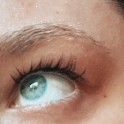-
Usernamejazzycolbert
-
Password
Leave password field empty to keep your existing password!
-
Confirm Password


Hi! I'm a writer and jeweler who also enjoys singing, line dancing, and playing with my dog, Kirby. Please check out my essay, "The Not-So-New Normal," for the Biopage Storytelling Writing Contest. Feel free to follow me on Instagram @jazzoriesbrave and check out my Etsy for my handmade jewelry, Jazzories.

"The Not-So-New Normal" by Jazzy Colbert
Sep 27, 2020 3 years agoRemember when you found out that COVID-19 would be more than a two-week ordeal and people started asking you questions like, “How are we going to cope with this scary time? How are we going to get used to seeing the world outside as dangerous? How are we expected to avoid approaching strangers and act like it is normal?” When my friends and I are asked questions like these, we reply with a sigh: “This has been my normal since long before the pandemic.” Living with Obsessive Compulsive Disorder, we are neurologically unreliable at distinguishing what is safe from what is life-threatening. From my friend who is afraid to go outside – in case he sees a “disgusting” bird – to another who has struggled with a career in fashion – she views certain patterns on clothing as “bad luck” – to another who has avoided new restaurants – he is “deathly afraid” of getting food poisoning – you would think my crew is a non-spontaneous bunch. You would be wrong; these same people are fine with riding rollercoasters, driving fast cars, and swimming with sharks! OCD is a misunderstood beast. Contrary to what the media will tell you, a person is not “a bit OCD” when they appreciate order, cleanliness, or perfection. OCD is a disorder you either have or do not have that consists of unwanted obsessions or thoughts, feelings, images, or urges that “get more stuck” than the average person's, because patients misjudge how much their thoughts influence their and others' lives. These obsessions cover a wide range of themes – from a need for neatness, to fears that they are secretly pedophiles, a violent person, or going to Hell. What they worry is true is really the exact opposite of their values. This is how the disorder creates crippling fear. If your biggest fear were replayed on a loop daily, would your brain not get desperate trying to stop it? That is where compulsions come in. OCD tells patients that, to relieve anxiety, they must do mental or physical actions in certain ways. Since I was little, I remember feeling the need to blow a kiss to my bedroom ceiling before I left the house without knowing why. I just knew that if I did not, I would get bad luck, die, or anything in between. The catch with compulsions, other than making people the targets of bullying, is that doing them only temporarily relieves anxiety and makes the symptoms worse by confirming to their brains that the obsessions were correct to fear. It often takes years of expensive therapy to break every weird habit. Why was I trapped as a homebody before COVID-19? My OCD, specifically its perfectionism, contamination, and harm themes, got so severe at the beginning of 2020 that I had to leave college on medical leave, for the second time, and return home. I was so scared of the world that I only left my house for psychiatric evaluations. I barely kept myself alive because I was not able to eat or get through the day without having at least two multi-hour panic attacks. A good night's sleep meant that I did not wake up crying from a nightmare that I had drowned in an elevator filled with blood. During those first four months, I could count the things I was not afraid of on one hand. What got me through that seemingly impossible period to get to where I am now, the best my symptoms have ever been, other than Exposure Response Prevention therapy (accepting the potential consequences of obsessions and facing fears by not doing compulsions), was the connections I formed with my friends. Granted, they are much harder to cultivate in these physically distant times. So, imagine what it does to an OCD sufferer, who relies on day trips and nights out to distract from the spiral of distressing thoughts, when it becomes physically impossible to maintain those same healthy coping skills. The answer: more time alone with their thoughts leads to the return of past behaviors and new symptoms enabled by a world saying that it is “understandable” to be scared. I had to get craftier, literally, with my distraction techniques: I got back into making jewelry for my Etsy, Jazzories; writing mental-health-related poetry for my Instagram followers; and starting a makeshift Zoom support group for my fellow OCD warriors. You could say that self-expression led to the connections that have kept me alive in a climate of death. I believe those connections mean something: myself is worth expressing. This lesson is confirmed by the comments I get from people saying they relate to my story. What is the story those of us with OCD want shared? We ask that you understand us, not pity us, because we will win despite this biological bad draw. Understanding of OCD leads to faster diagnoses (the IOCDF states that on average, OCD patients get diagnosed 14-17 years after symptoms first appear) and better, more affordable treatment. Lastly, next time someone calls themselves OCD as a quirky adjective instead of a serious disorder, please educate them with an infectious smile!







_media.jpeg)
